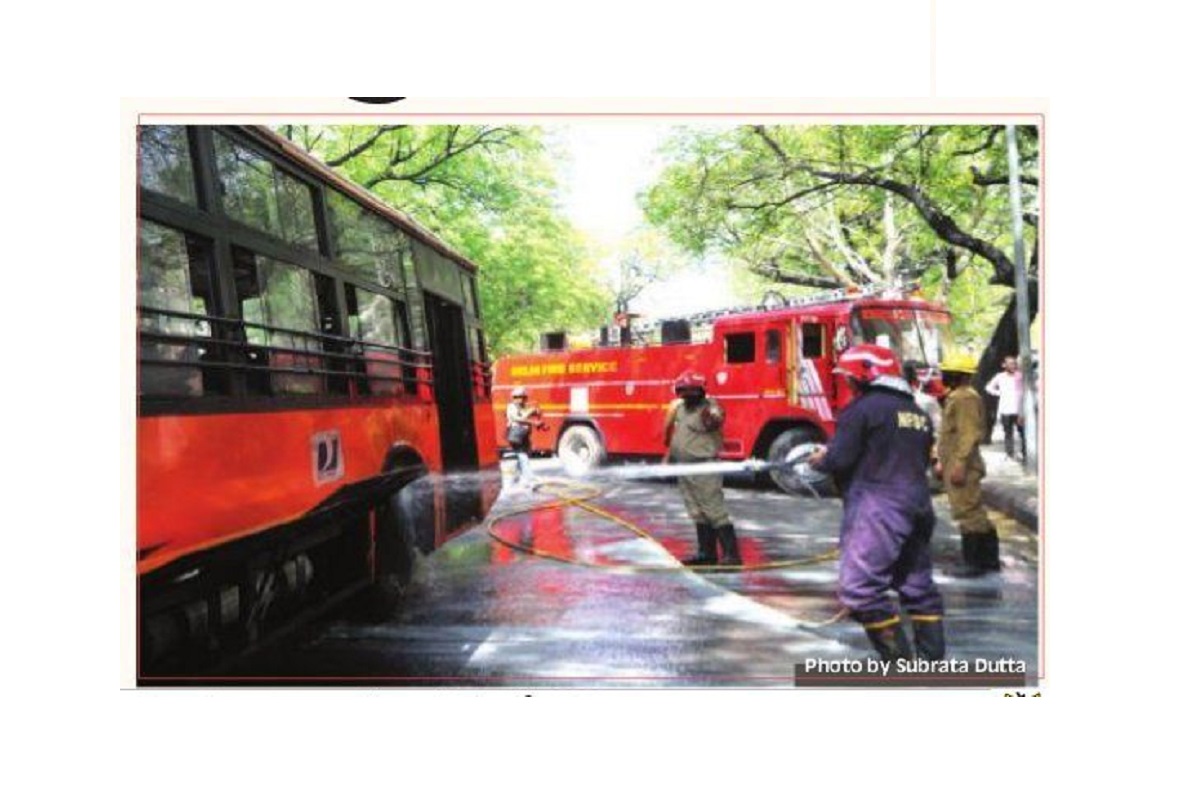“DTC bus catches fire.” This is no surprise for Delhi’ites during summers. The DTC buses have been burning in Delhi for years. As temperatures rise, the low floor DTC buses, with their engines in the rear, succumb to the heat and catch fire.
The passengers leave the buses quickly as the crew can’t fathom how to stop the fire. Ever since the long AC and non-AC buses, i.e. red and green buses, came on Delhi roads, the fires have been regular.
Advertisement
Those who have travelled in DTC or DTU buses 30 to 50 years back are not surprised why the fires have become common. The technical committees can give their findings.
But as long as the normal length buses, with their engines next to the driver’s seat, ran in the Capital, the fires were rare. The drivers took care of the engines almost like their pets.
The engines had steel covers that could be lifted with their handles. As soon as the driver felt the engine was heating up, particularly during summers, he would stop the vehicle at the nearest watering point, take a few mugs of water, and put them in the engine radiators to cool them.
Since the engine transmitted its heat in the bus coach, the driver and even passengers in the front could easily see that the engine needed rest. After the watering break, the crew would relax for a few minutes, and then restart their journeys with the packed buses.
The DTC buses were the only common man’s transport those days and none objected to the fully justified break needed by the buses. A loss of a bus in fire those days meant a loss of service on which hundreds of passengers depended. There were no easy replacements for the services. The whole operation was transparent.
The passengers knew what the driver was up to. The low-floor long buses were brought for their low entry points. Some of them offered AC travel.
These were the only comforts for the passengers. But for Delhi’s narrow roads, the long buses were an obvious threat to other traffic. They often hit vehicles coming too close on the left side.
The road users had learnt to survive with the old buses but had no idea the long buses posed danger from their rear. It has taken a couple of decades for the Delhi’ites to get used to the long buses and their manner of turning on roads.
The roads too have been widened wherever this was possible. But heating of the new buses remains a challenge. When the engines of these buses heat up, the drivers have no clue about it as the engines are at the back of the vehicles, and they run them till the fire smoke is visible.
The buses belch heat waves on the faces of autos, two-wheelers, and cars following them. In fact, it is easy for other road users to guess when a bus might be close to catching fire. They suffer the smoke and the rough noise made by the engines under strain. In one instance, on a hot afternoon, a long DTC bus started to emit ting smoke from its engine on Vikas Marg.
Those behind the bus on this ever over-crowded narrow road in East Delhi knew what was to come, but there was no escape. Everybody had to wait to see what happened.
The bus stopped, the passengers got down, and the crew watched the bus from the pavement. Fortunately, there was no explosion of fire as was seen this month in a bus in Mahipalpur in South Delhi on 6 April, when the bus fire was so intense that it burnt a few nearby shops also.
The AC buses heat up faster than the other buses. Some crew staff knows how to avoid fire in these vehicles. They switch off the ACs. Bus passengers in Delhi never complain. They know they have no choice, and the stretches they have to travel for their work every day are served by the DTC only, and there are no nearby Delhi Metro connections.











